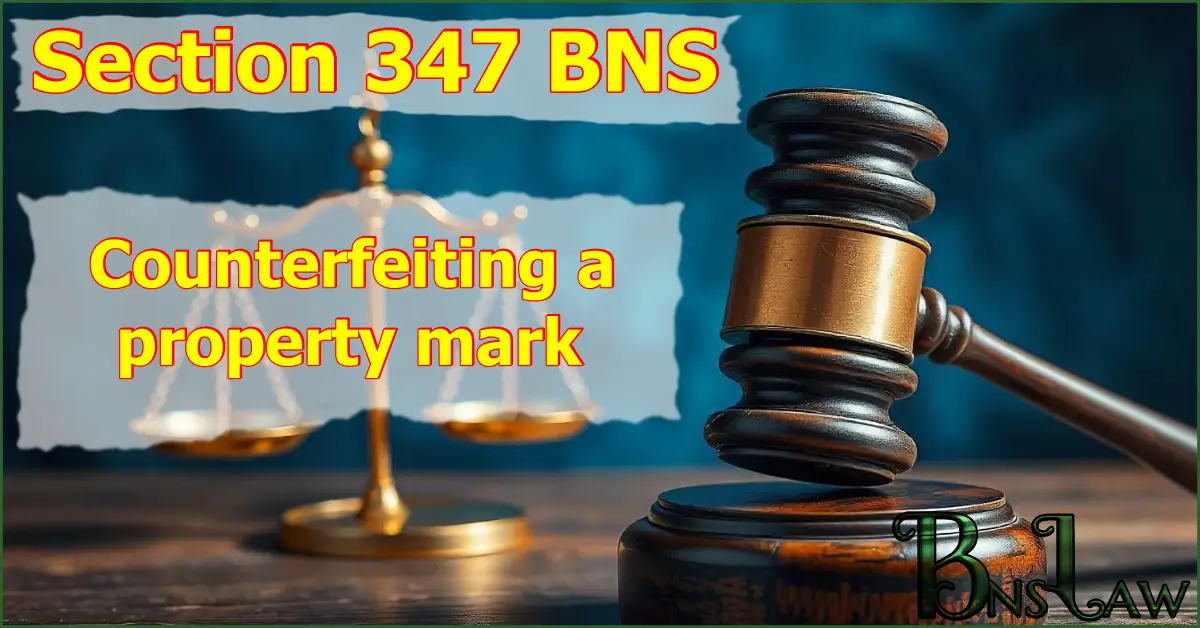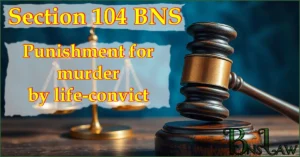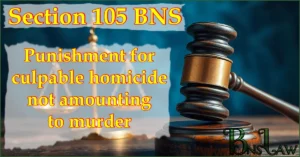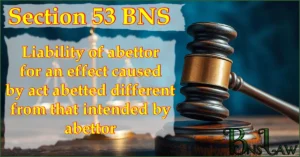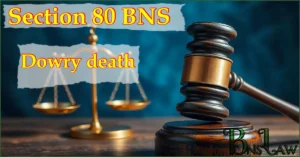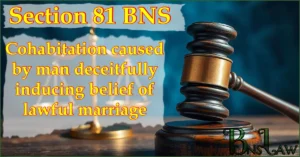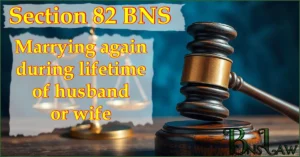Section 347 BNS | BNS 347
347(1) BNS
Whoever counterfeits any property mark used by any other person shall be punished with imprisonment of either description for a term which may extend to two years, or with fine, or with both.
347(2) BNS
Whoever counterfeits any property mark used by a public servant, or any mark used by a public servant to denote that any property has been manufactured by a particular person or at a particular time or place, or that the property is of a particular quality or has passed through a particular office, or that it is entitled to any exemption, or uses as genuine any such mark knowing the same to be counterfeit, shall be punished with imprisonment of either description for a term which may extend to three years, and shall also be liable to fine.
READ OTHER SECTIONS OF CHAPTER XVIII — OF OFFENCES RELATING TO DOCUMENTS AND TO PROPERTY MARKS
FAQs of BNS Section 347
-
347 BNS punishment and fine
Punishment and fine under Section 347 of the BNS—
347(1): Imprisonment for 2 years, or fine, or both.
347(2): Imprisonment for 3 years and fine. -
347 BNS cognizable or not
The offence under Section 347(1) and 347(2) of the BNS is non-cognizable.
-
347 BNS bailable or not
The offence under Section 347(1) and 347(2) of the BNS is bailable.
-
347 BNS trial court
Offence specified in Section 347(1) of the BNS is triable by any magistrate while the offence specified in Section 347(2) is triable by the Magistrate of the first class.
Important Points
- Cognizable Offences: These are offences where a police officer can arrest a person without a warrant.
- Non-Cognizable Offences: These are offences where a police officer cannot arrest a person without a warrant.
- Bailable Offences: These are offences where the accused can get bail from the police station itself. All bailable offences are listed in the First Schedule of the Bharatiya Nagarik Suraksha Sanhita (BNSS).
- Non-Bailable Offences: Offences in which bail is not granted directly from the police station but after hearing the case in the court, the judge decides when bail will be granted. All non-bailable offences are listed in the first schedule of the Bharatiya Nagarik Suraksha Sanhita (BNSS).
- In the above FAQ, “trial court” means the court that has jurisdiction to try the offence.
- In the above FAQ, the expression “Magistrate of the first class” and “Any Magistrate” does not include Executive Magistrates.
Read other Sections of the BNS
Reference Link: New Criminal Laws (BNS), Ministry of Home Affairs

